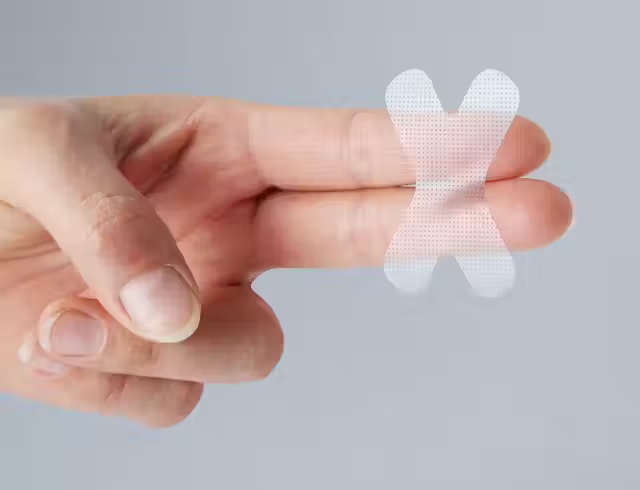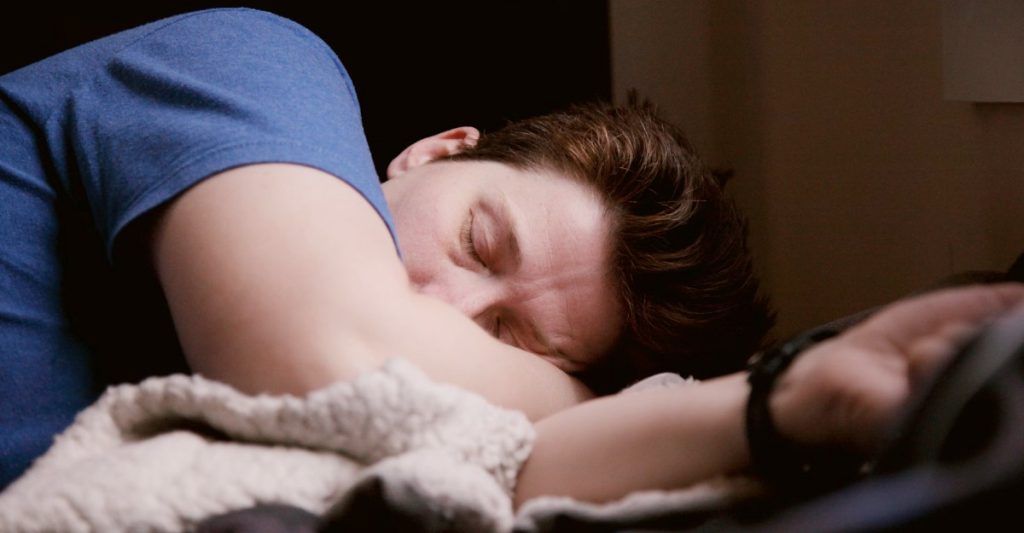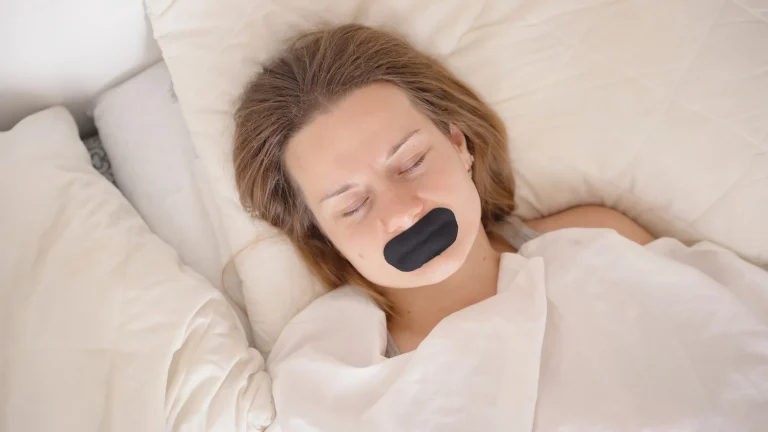Mouth taping, a viral trend promoted as a sleep-enhancing hack, is gaining traction on platforms like TikTok and Instagram. Enthusiasts claim it can stop snoring, improve oral health, and even reshape the jawline. While these promises sound appealing, many medical professionals are urging caution, especially following a new study from Western University in Canada.
This growing fascination with DIY sleep solutions may seem harmless at first glance, but mouth taping isn’t as straightforward or safe as influencers suggest. In fact, according to research published in PLOS ONE, this method can pose significant risks, particularly for individuals with underlying respiratory conditions. Before you grab the tape, it’s crucial to understand the science, the potential dangers, and why professional medical guidance remains essential.
Understanding the Trend of Mouth Taping
Mouth taping involves sealing the lips shut with adhesive strips before going to sleep. Proponents claim it encourages nasal breathing, which is thought to improve sleep quality and reduce snoring. The logic is simple: if your mouth is taped, your body will adapt by breathing through your nose.
However, this idea ignores the complex reasons behind mouth breathing. Factors such as nasal congestion, anatomical issues like a deviated septum, and conditions like sleep apnea can make nasal breathing difficult or impossible during sleep. In these cases, forcing nasal breathing could lead to oxygen deprivation or serious complications.
What the Research Really Says
Researchers from Western University reviewed ten separate studies involving 213 participants to evaluate the actual effects of mouth taping. The findings were far from encouraging. Only two of the studies showed a slight improvement in a particular group: people with mild obstructive sleep apnea.
More alarmingly, nearly half of the studies raised red flags about potential health risks. These included asphyxiation due to nasal blockage, particularly in individuals suffering from allergies, chronic rhinitis, or enlarged tonsils. The review makes it clear: the health risks can outweigh the supposed benefits.

Potential Health Dangers of Sealing the Mouth During Sleep
The primary risk of mouth taping is reduced airflow when the nasal passages are compromised. If the nose is blocked due to a cold, allergies, or anatomical issues, mouth breathing is the body’s backup system. Taping the mouth eliminates this essential safety net.
Researchers also emphasized the danger of regurgitation during sleep. If vomiting or acid reflux occurs, a sealed mouth can prevent the body from clearing the airway effectively, increasing the risk of choking or aspiration.
Such dangers make this trend especially hazardous for individuals with pre-existing respiratory conditions. It’s not just ineffective for some people—it can be life-threatening.
When Mouth Taping Might Be Appropriate
Despite the concerns, the study doesn’t completely dismiss mouth taping. There appears to be a limited context in which it may be helpful: patients with mild obstructive sleep apnea under the supervision of a medical professional. For these individuals, restricting mouth breathing may reduce the number of sleep disruptions.
However, even in these rare cases, medical oversight is critical. The process requires careful assessment, proper diagnostics, and continuous monitoring—none of which social media can provide. This makes self-experimentation risky and ill-advised.
Safer Alternatives for Better Sleep and Reduced Snoring
For those struggling with snoring or sleep quality, safer, evidence-based options are available:
- Use a humidifier to reduce nasal dryness and congestion.
- Try nasal strips or decongestants under the guidance of a healthcare professional.
- Sleep on your side to improve airflow.
- Avoid alcohol and heavy meals before bedtime.
- Consult a sleep specialist for personalized treatments, such as CPAP therapy.
These approaches address the root causes of poor sleep and mouth breathing without resorting to unproven or risky hacks.

FAQ’s
Is mouth-taping safe for everyone?
No, especially not for those with nasal blockages, sleep apnea, or other respiratory conditions. Always consult a doctor.
Can mouth-taping cure snoring?
There is no strong scientific evidence to support mouth taping as an effective treatment for snoring in the general population.
What are safer alternatives to mouth taping?
Nasal strips, lifestyle changes, and CPAP machines are safer and more effective options for treating sleep apnea.
What if I breathe through my mouth due to allergies?
Mouth taping can be dangerous in this case. Allergy management with medication or nasal sprays is a better solution.
Could mouth-taping improve sleep quality?
In particular cases of mild obstructive sleep apnea, it may be helpful, but only with medical supervision.
Conclusion
Mouth taping may seem like a quick fix for sleep issues, but the risks are real and significant. Limited scientific evidence, potential for asphyxiation, and lack of professional oversight make this trend more harmful than helpful. If sleep quality is a concern, consider consulting a qualified healthcare provider instead of using the tape. Safe, effective solutions do exist—and they don’t require following internet trends.


